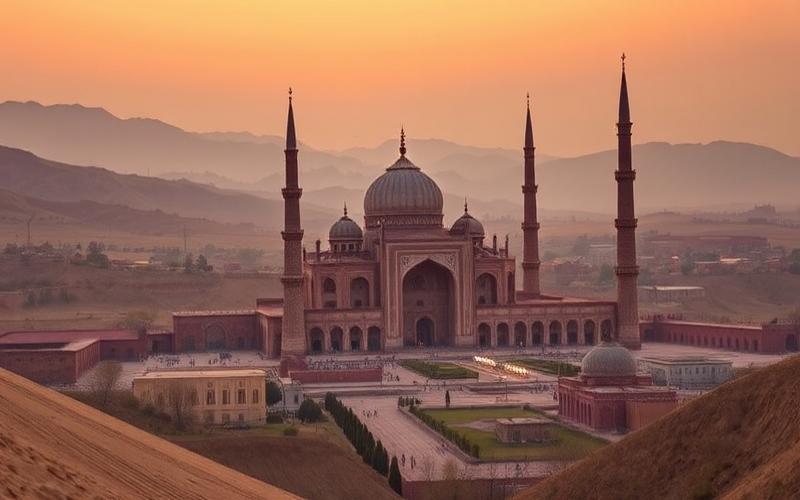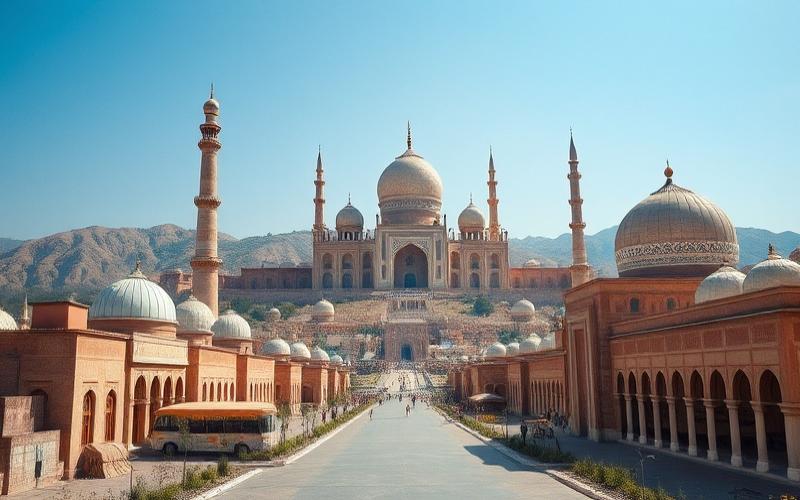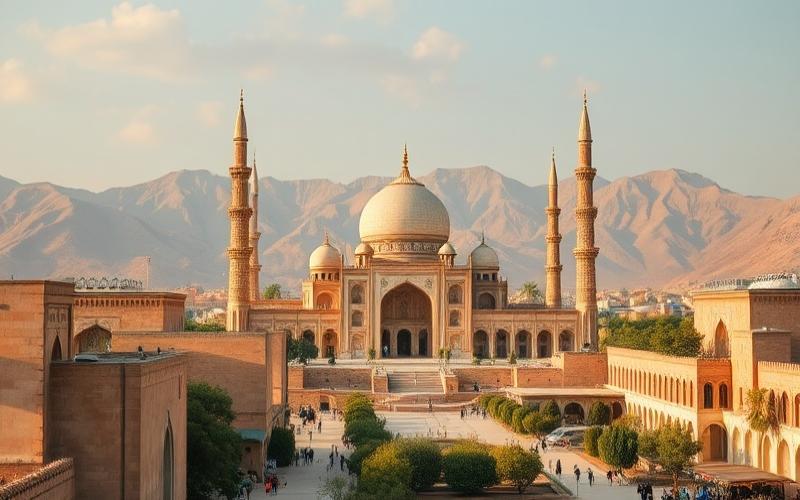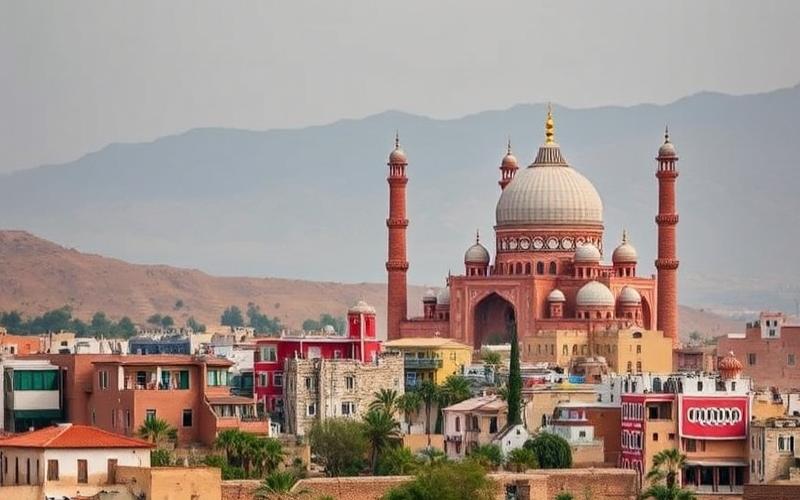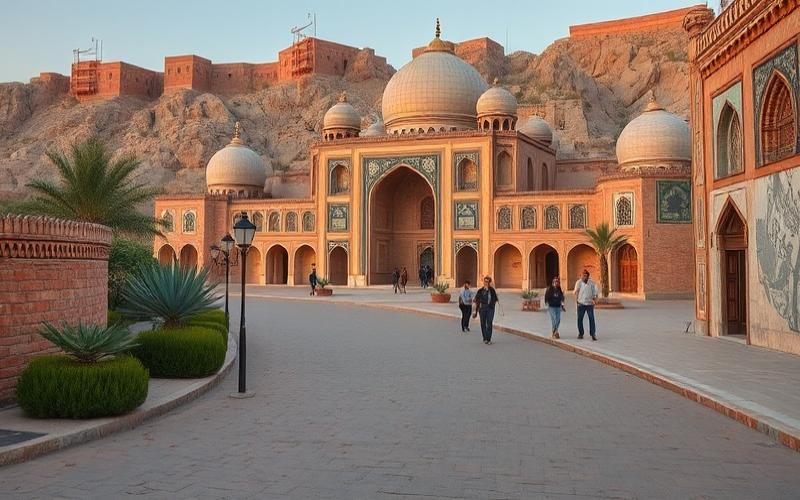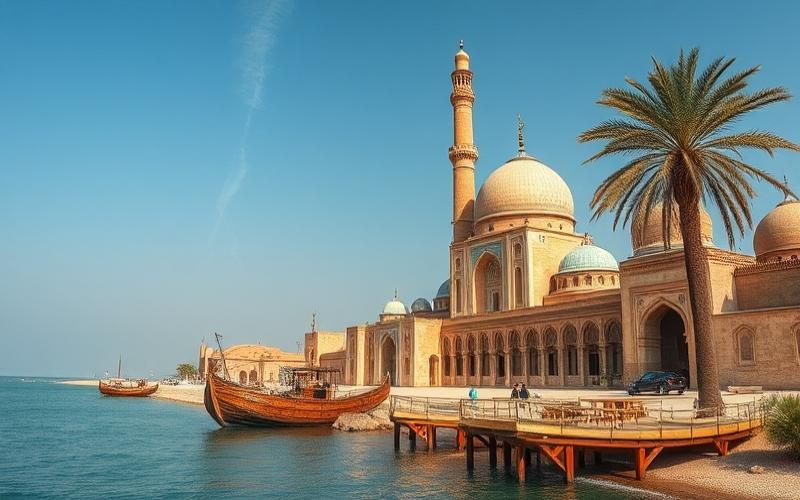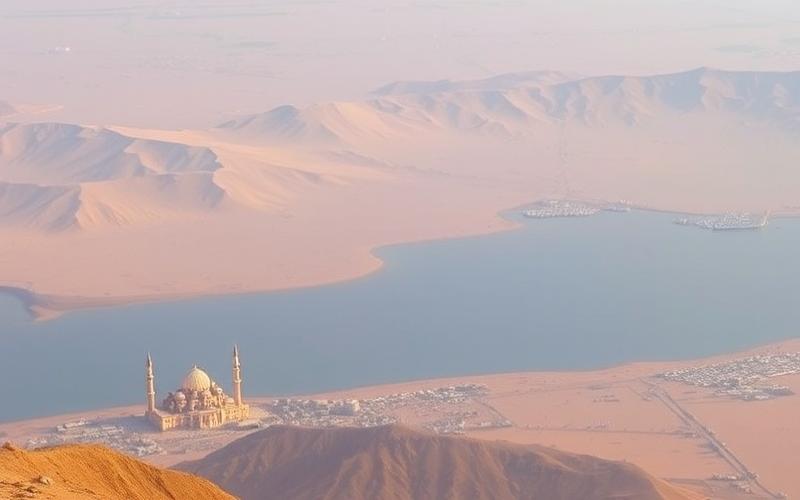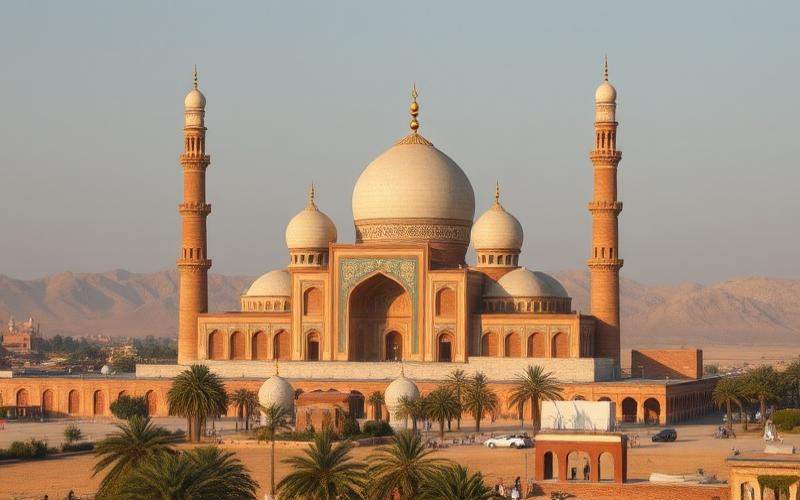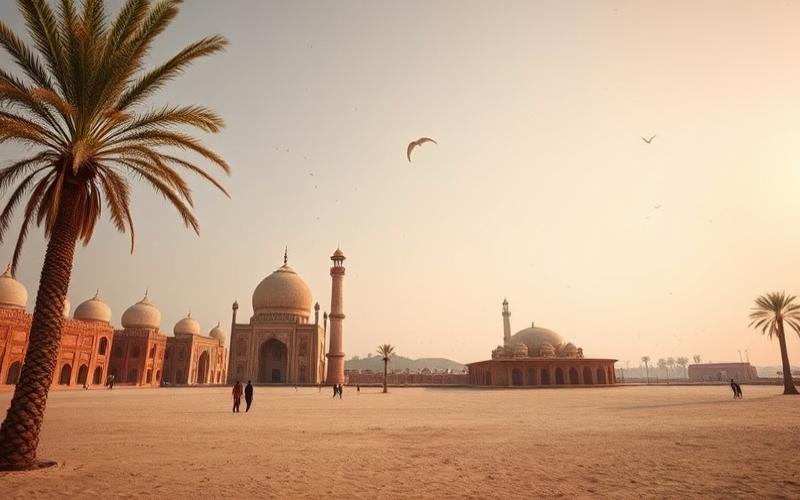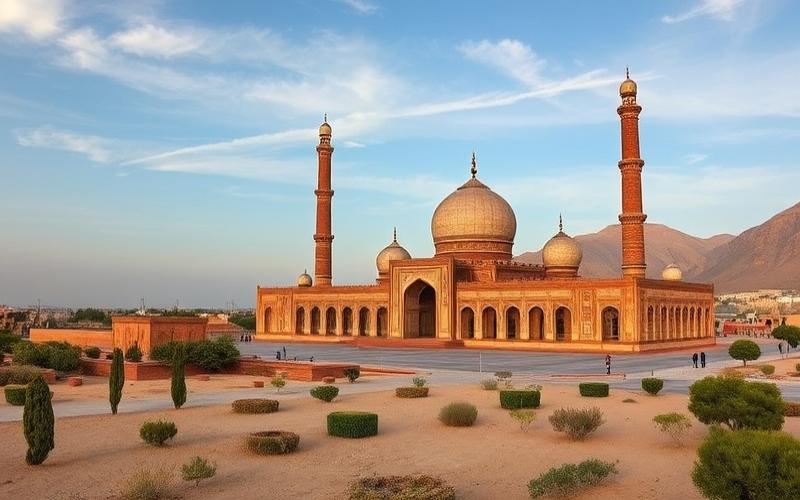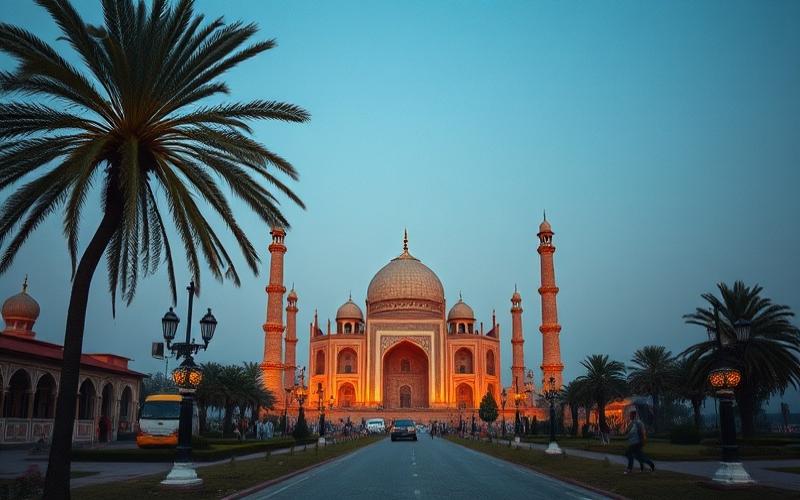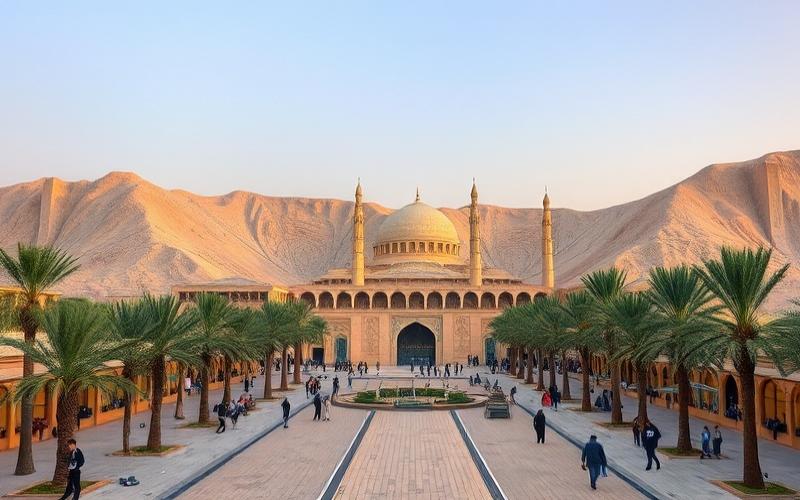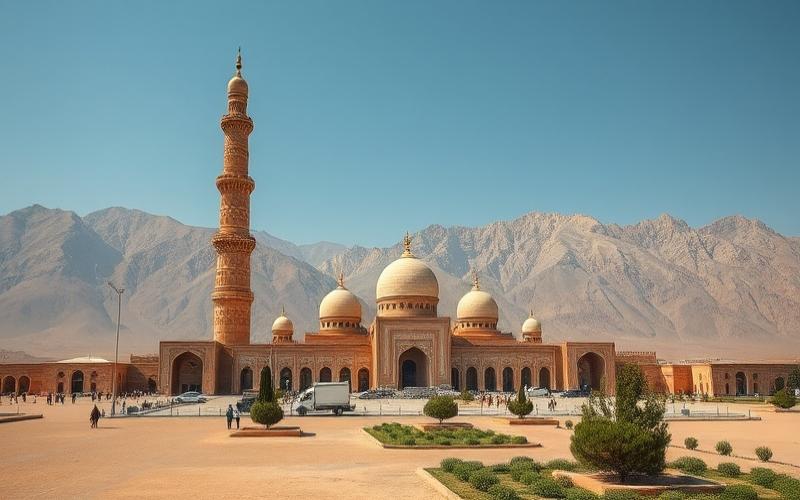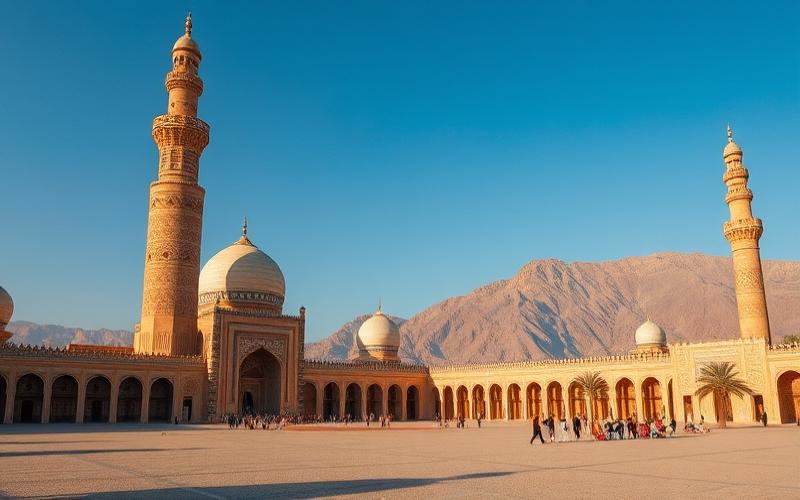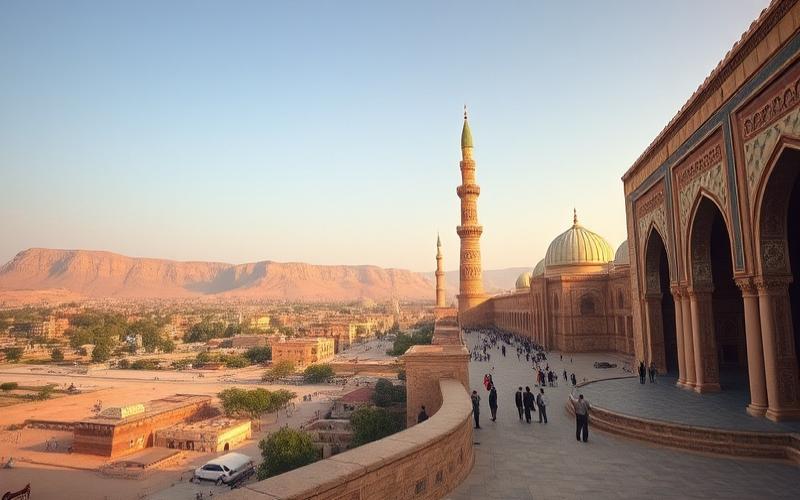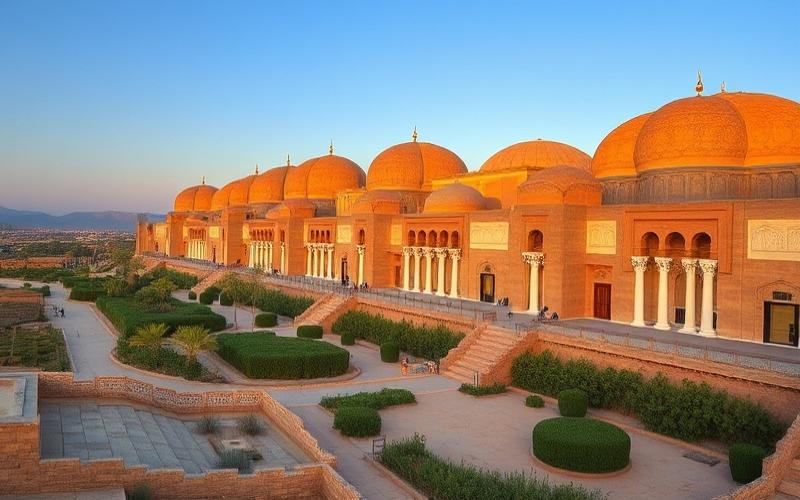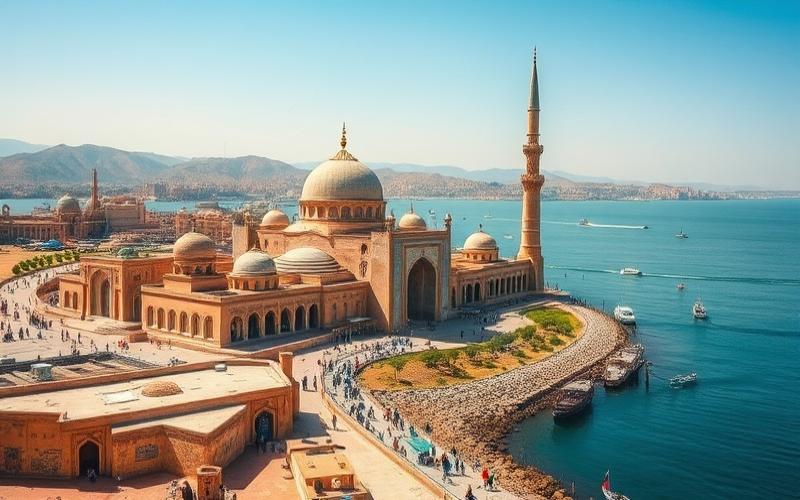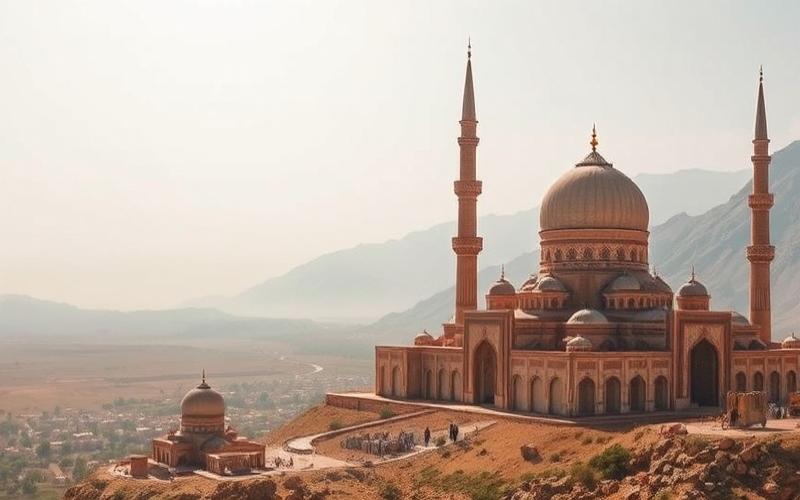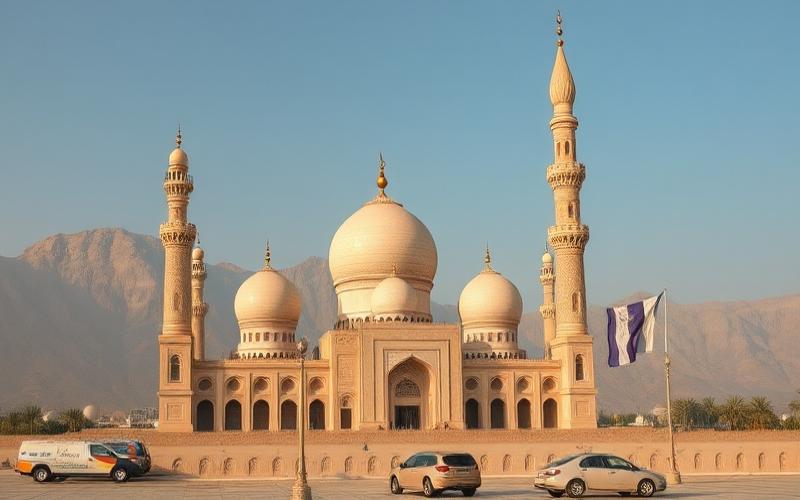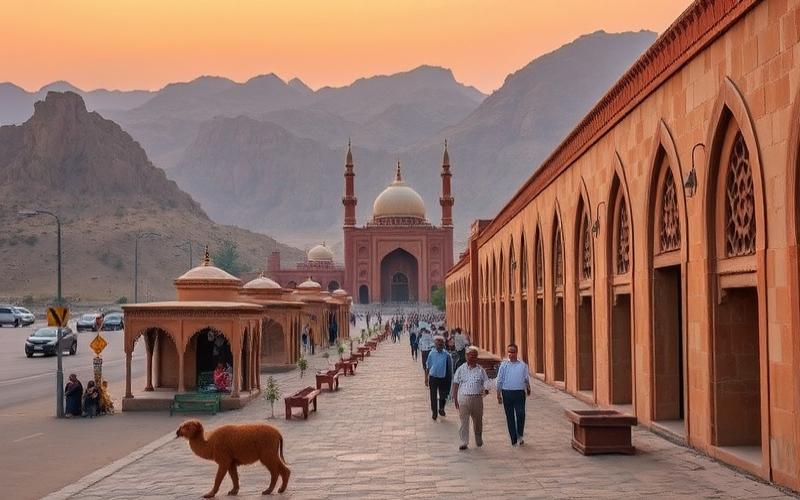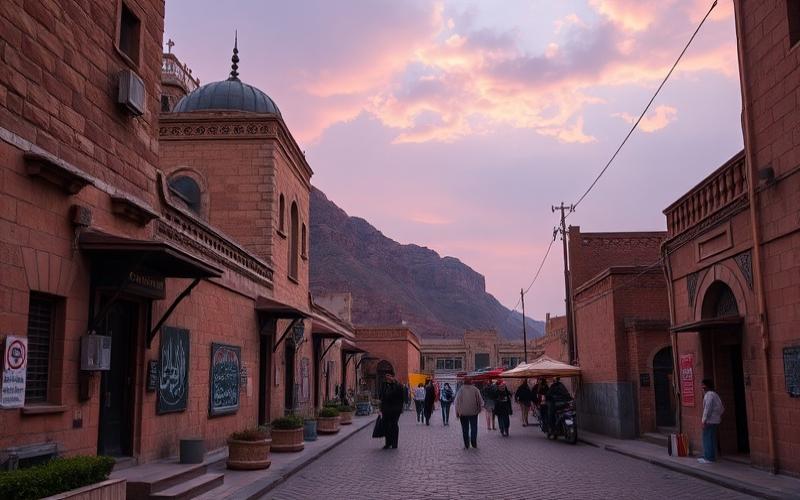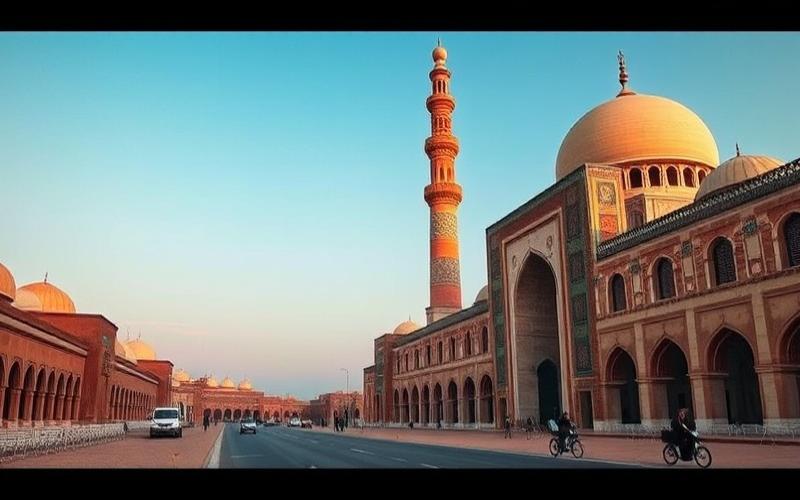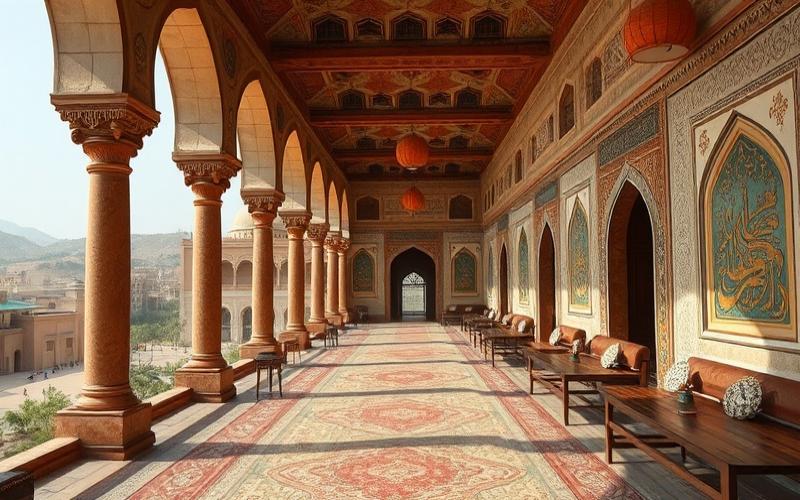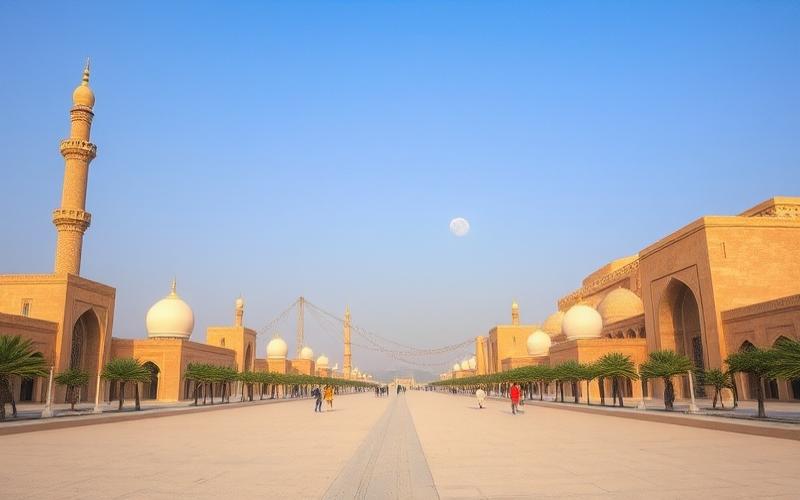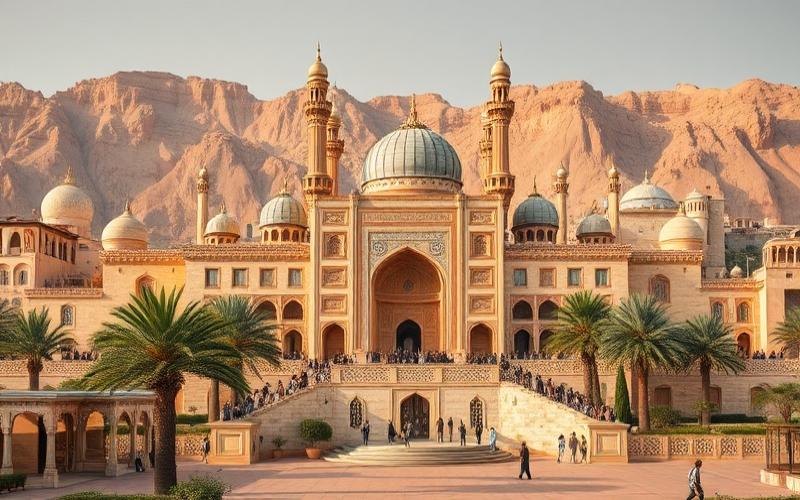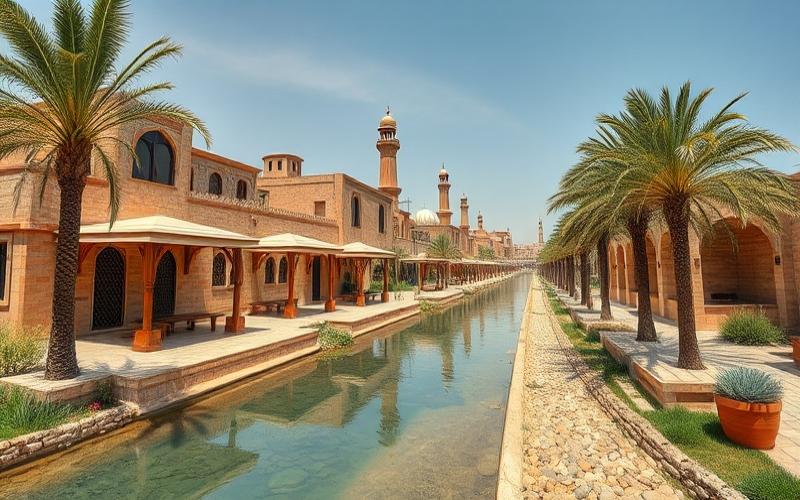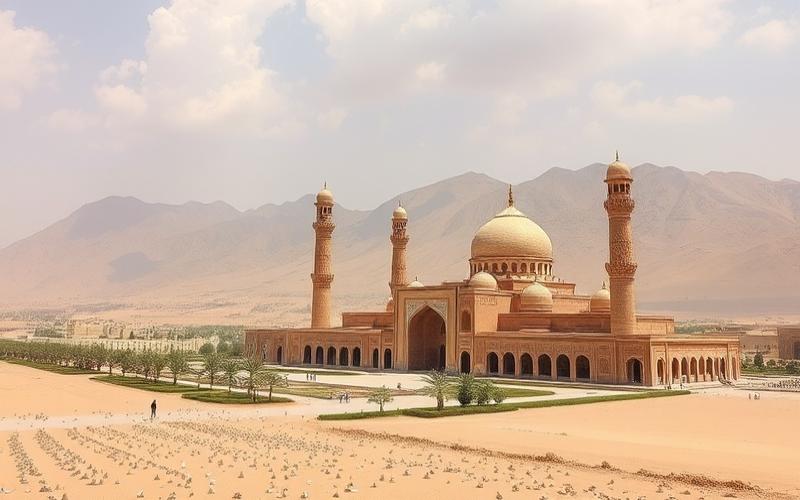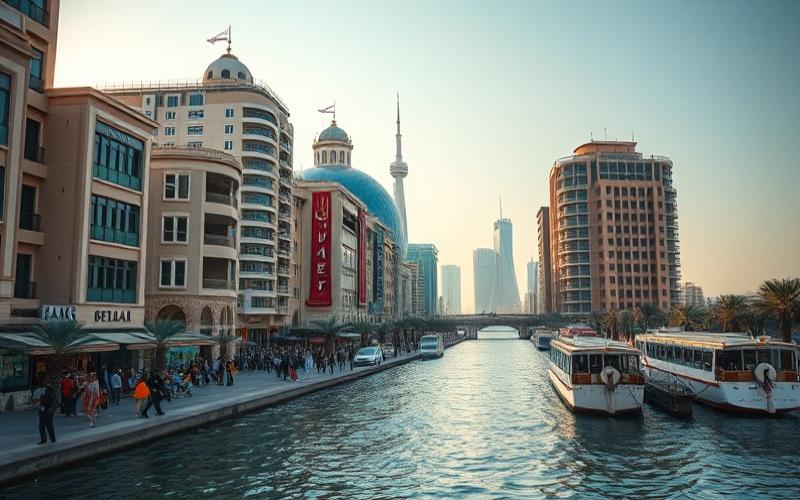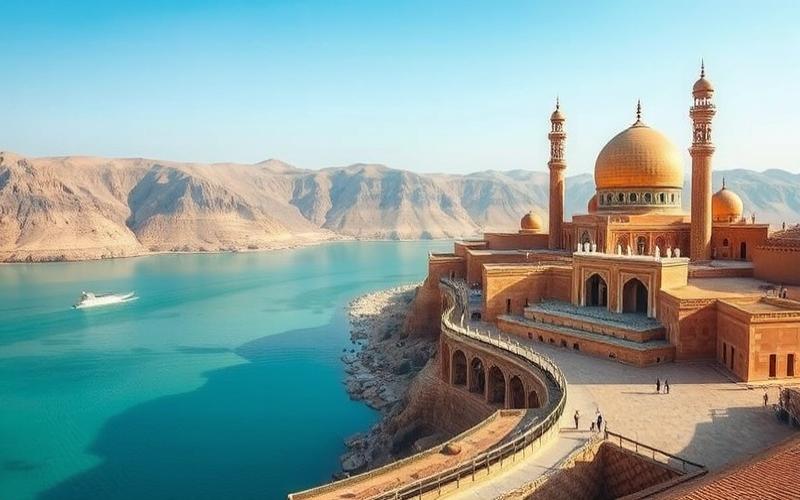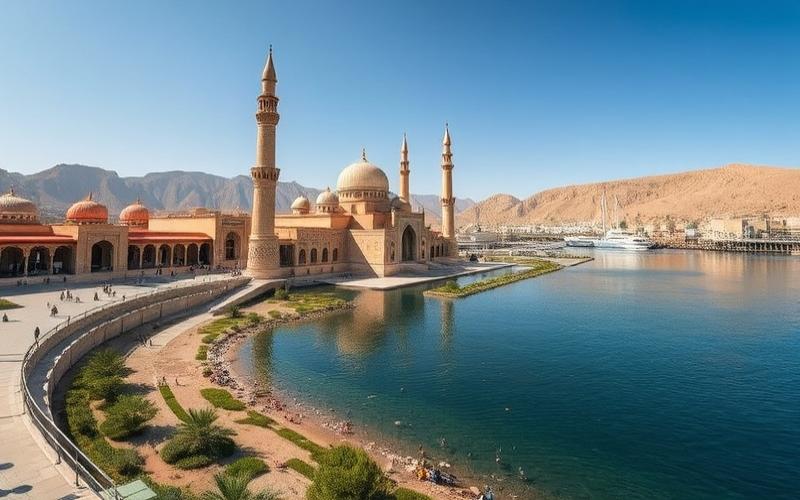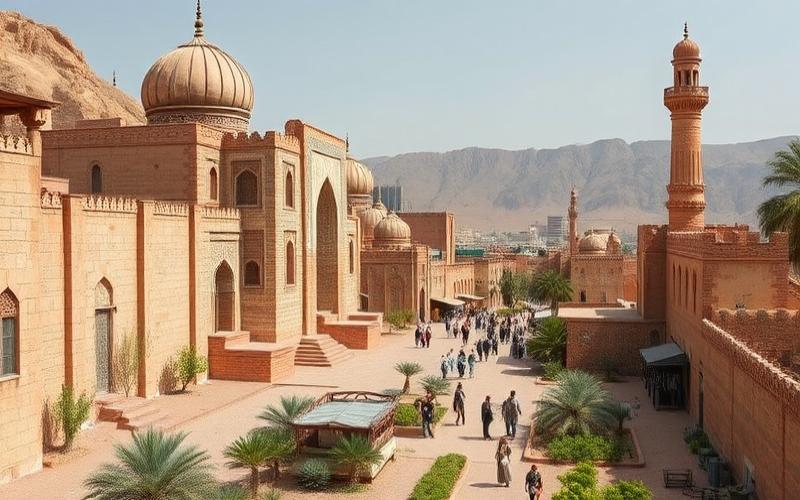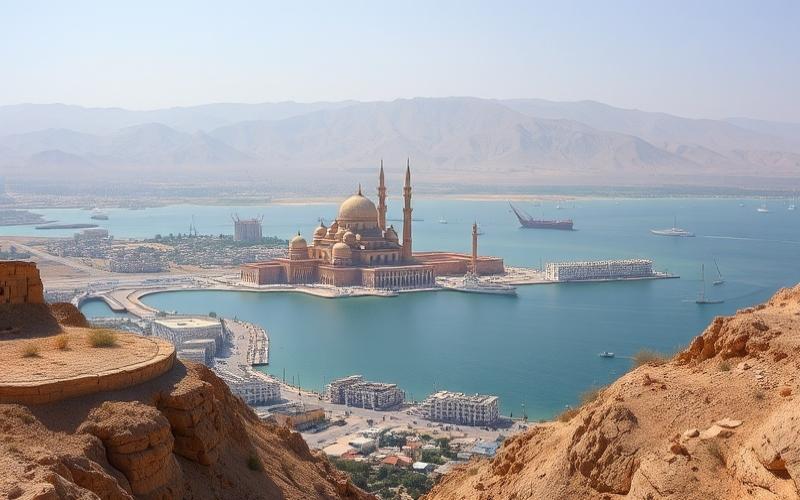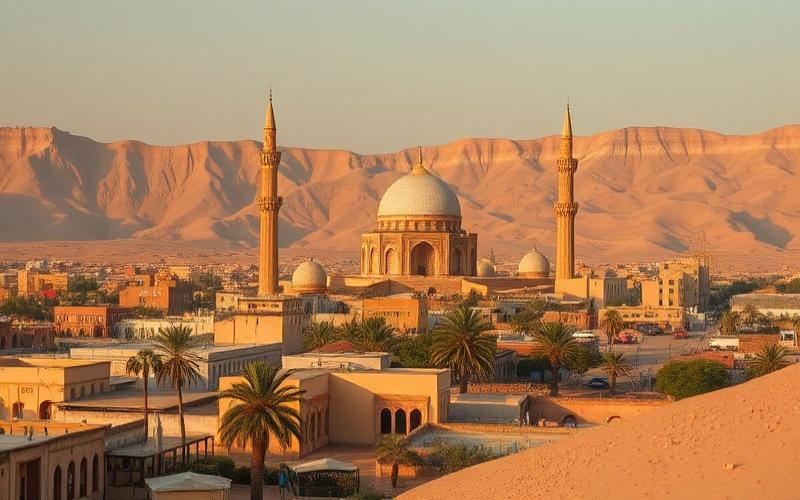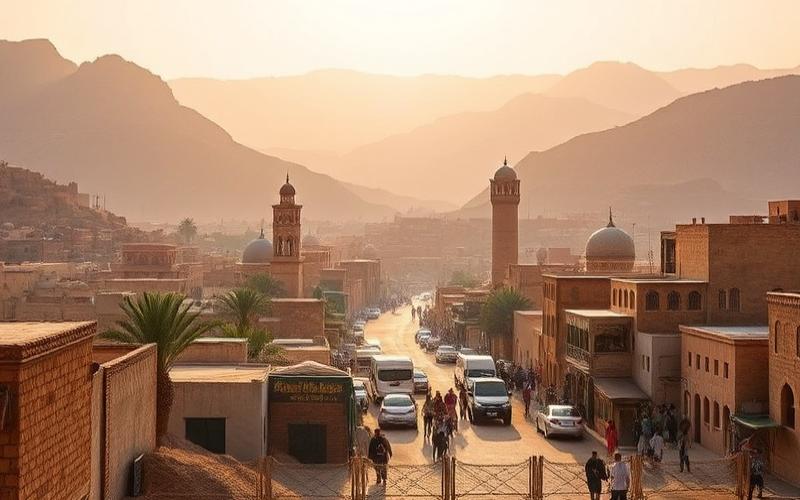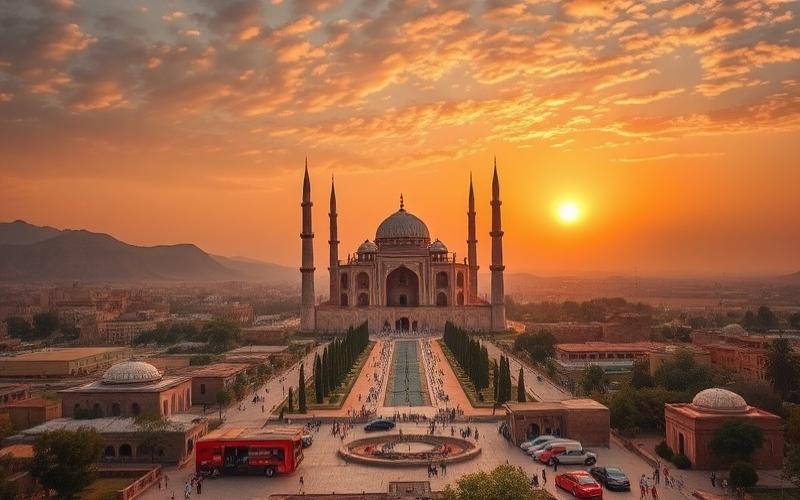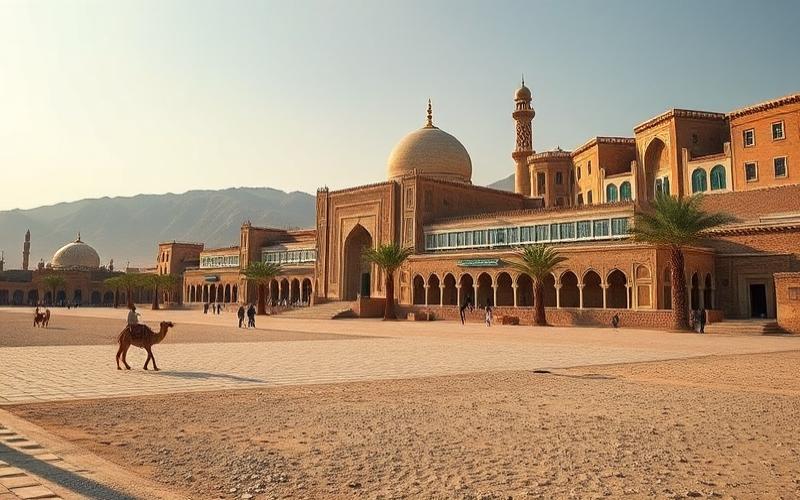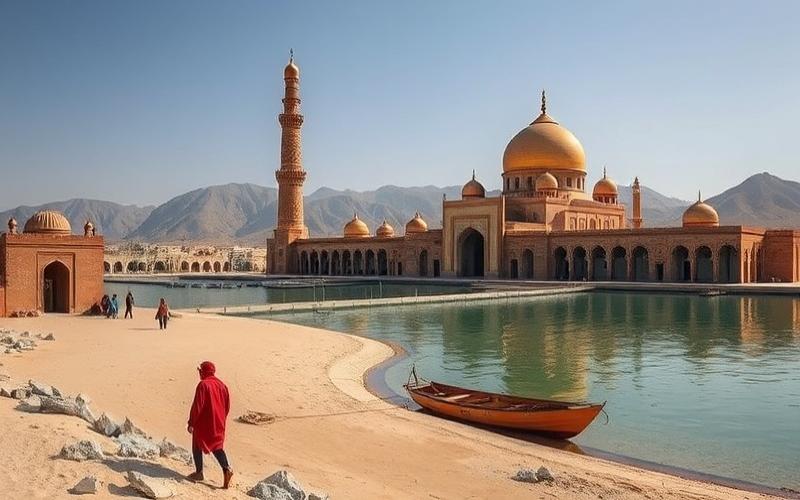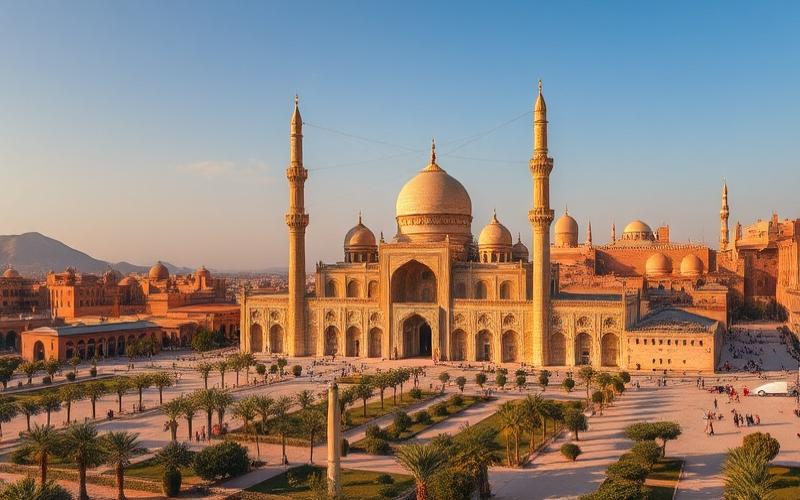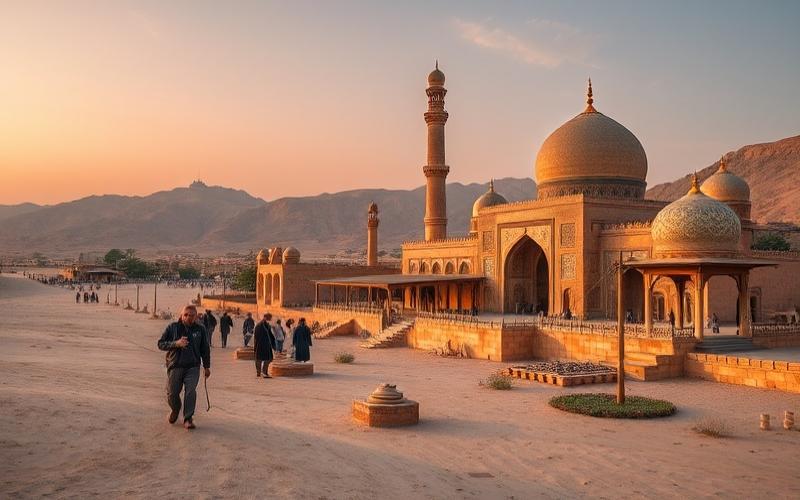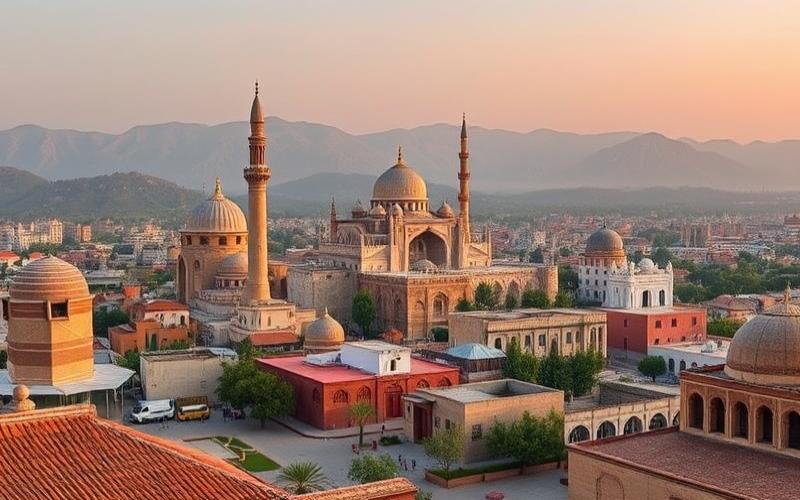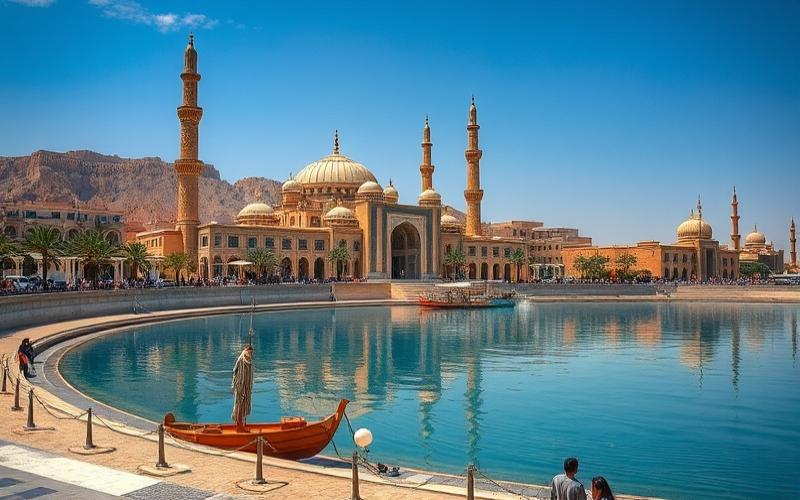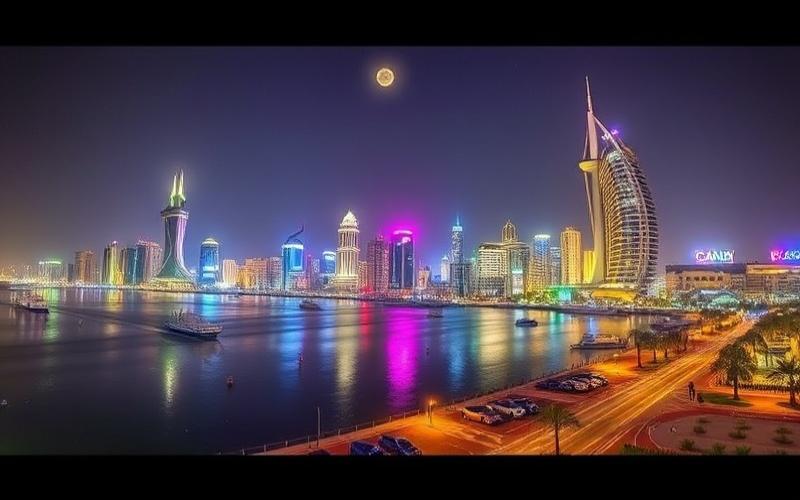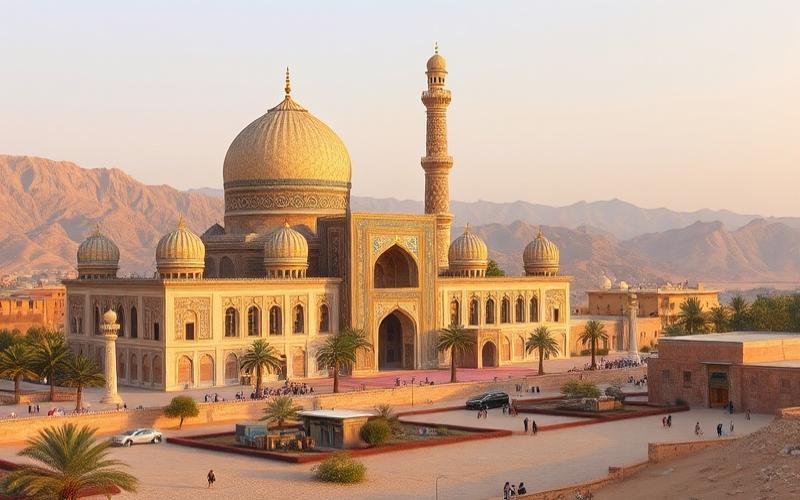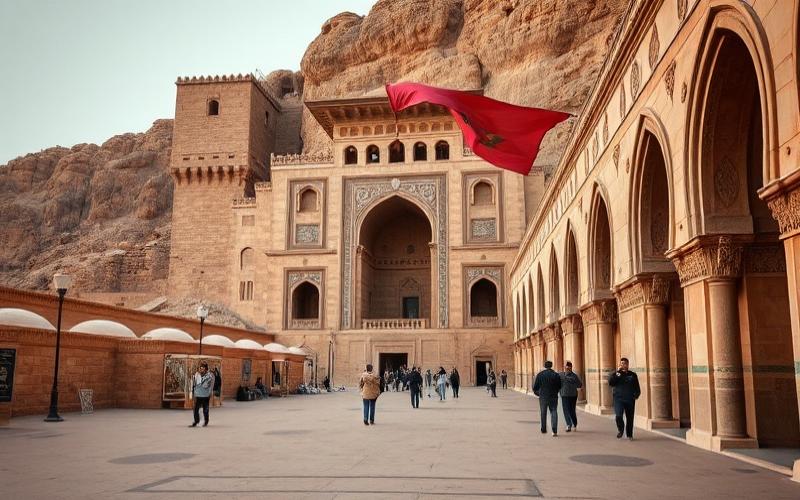
 Published on and written by Cyril Jarnias
Published on and written by Cyril Jarnias
At the heart of the Persian Gulf, Bahrain stands out as a dynamic and international economic hub, offering remarkable investment opportunities in the commercial real estate sector. Thanks to investor-friendly legislation and its strategic location, this island kingdom is attracting more and more entrepreneurs and businesses eager to diversify their portfolios.
Sectors ranging from modern commercial complexes to high-tech business centers are booming, with high profitability potential and growing demand. Dive into this exploration of the assets that Bahrain deploys to attract real estate investors from all backgrounds, in a context where innovation and economic growth continue to strengthen its appeal.
Commercial Real Estate in Bahrain: A Goldmine for Investors
Bahrain’s economic growth is accelerating in 2025, driven by the strength of non-oil sectors, which has a direct impact on the dynamism of the commercial real estate market.
- Annual GDP growth stood at 2.6% in 2024 and is expected to reach 2.7% in 2025, mainly due to a 3.4% increase in non-oil activities representing over 86% of GDP.
- The main drivers are private consumption (40% of GDP) and investment (30%), stimulated by monetary easing and contained inflation.
- Sectors with the strongest recent growth:
- Information & communication: +12.4%
- Transport & storage: +11%
- Manufacturing: +7%
- Construction: +6.8%
- Accommodation/food services: +6.1%
Influence on the Commercial Real Estate Market
- The recovery in real estate prices accompanies the expansion of tertiary sectors.
- The boom in infrastructure investments (Vision 2030) is driving demand for modern commercial spaces.
Key Sectors of the Commercial Real Estate Market
| Sector | Recent Dynamics | Flagship Projects / Attractiveness |
|---|---|---|
| Retail | Growth supported by tourism and domestic consumption; continuous development of new shopping malls | City Centre Bahrain (largest shopping mall), The Avenues Bahrain |
| Office | Increased demand linked to the financial and technology sectors; accelerated digital transformation | Bahrain Financial Harbour, Seef District |
| Hospitality | Strong growth thanks to post-pandemic tourism surge; high occupancy rates | International hotel developments in Manama |
Recent Developments & Attractive Future Projects
- Modernization of the Bapco refinery (+42% refining capacity).
- Major investments led by the Saudi sovereign wealth fund PIF ($5 billion announced).
- Continuous expansion of logistics infrastructure and special economic zones:
- Bahrain International Investment Park
- Salman Industrial City
- Amwaj Technology Park
Government Incentives & Pro-Foreign Investment Policies
List of main measures:
- Foreign ownership permitted up to 100% in several strategic sectors
- Partial tax exemptions for newly established companies
- Free zones offering reduction or temporary elimination of local taxes
- Simplified process for obtaining business licenses
Relevant Real Estate Statistics
| Indicator | Key Data |
|---|---|
| Prime office rental yield | Approximately 7–8%, stable despite regional context |
| High-end retail yield | Up to 9%, driven by tourist flows |
| Real estate value growth | Moderate increase since mid-2023 (+2–3%) |
Major structural hubs – such as City Centre Bahrain or Salman Industrial City – significantly contribute to national attractiveness for regional and international investors.
The combination of robust non-hydrocarbon economic growth,
policies favorable to foreign investors,
and continuous development of modern infrastructure positions Bahrain as an emerging hub for commercial real estate in the Middle East.
Good to Know:
Commercial real estate in Bahrain, with a booming economy showing an average annual growth rate of 4.5% in recent years, is a thriving sector offering solid annual returns around 7-8%. Retail, office, and hospitality are particularly dynamic, thanks to projects like the transformation of the Seef area into a business hub and recent developments of Avenues Mall and Bahrain Bay. Government tax incentives and favorable policies, such as residence permits for foreign investors and the creation of special economic zones like the Bahrain International Investment Park, enhance the market’s appeal. Furthermore, initiatives to promote digitalization and innovation in technology parks, such as Bahrain FinTech Bay, position Bahrain as a hub of opportunities for spaces dedicated to new technologies and startups.
Exploring Types of Commercial Properties in Bahrain
Commercial Properties in Bahrain: Diversity, Trends, and Regulation
Offices and Business Centers
The most dynamic business areas are located in Manama, the economic capital, with districts like Bahrain Financial Harbour and Seef District.
- Types of offices available:
- Modern coworking spaces suitable for startups and freelancers.
- Fully equipped offices in business centers, with shared services.
- Entire floors in high-end commercial towers, meeting the needs of large regional or international companies.
- Flexible spaces allowing for short or medium-term leases.
| Office Type | Main Characteristics |
|---|---|
| Coworking | Flexibility, 24/7 access, shared services, networking |
| Business Centers | Equipped offices, reception, meeting rooms |
| Commercial Towers | Large spaces, security, premium image |
Access conditions are facilitated by the possibility of full ownership for foreigners in certain zones, and the absence of minimum capital requirements for leasing offices in most cases.
Shopping Malls and Retail
Bahrain stands out for its high density of modern shopping malls and retail galleries.
- Types of properties:
- Large-scale shopping malls like City Centre Bahrain, The Avenues, Seef Mall.
- Individual shops in traditional souks or shopping streets.
- Retail galleries integrated into residential or hotel complexes.
| Property Type | Example / Area | Attractiveness |
|---|---|---|
| Large Mall | City Centre Bahrain | Flagship destination, high traffic |
| Retail Gallery | Seef Mall | Mixed, international brands |
| Individual Shop | Manama Souk, Adliya | Specialized, local clientele |
The retail sector benefits from stable tourist flow and a young population, fostering the growth of franchises and new concepts.
Industrial and Logistics Facilities
Industrial parks and free zones play a key role in logistics and production.
The Bahrain International Investment Park (BIIP) is a major industrial hub offering:
- Easy access to port and airport infrastructure.
- Tax and customs incentives for foreign companies.
Other zones: Bahrain Logistics Zone (BLZ), Bahrain International Airport Logistics Park.
| Industrial Zone | Specifics |
|---|---|
| BIIP | Multi-sector, direct port access |
| BLZ | Logistics, warehousing, distribution |
| Airport Logistics Park | Immediate proximity to the airport |
These infrastructures support regional trade and re-export activities.
Hospitality and Tourism
The hospitality sector remains promising, especially in the luxury and beach resort segments.
- Types of opportunities:
- 4 and 5-star hotels (Four Seasons, Ritz-Carlton, Gulf Hotel).
- Seaside resorts, complexes with spas and golf.
- Mid-range or specialized accommodation properties (boutique hotels, serviced apartments).
Bahrain continues to attract investments in hospitality thanks to its stability, international events, and proximity to Saudi Arabia.
Specialized Commercial Properties
Market diversification with:
- Private medical clinics, particularly in dedicated buildings.
- Educational centers (international schools, training centers, nurseries).
- Entertainment properties: cinemas, gyms, leisure centers (indoor theme parks, escape rooms, etc.).
Market Trends and Regulation
The commercial real estate market remains dynamic with a diverse supply and attractive prices compared to other Gulf countries.
- Recent introduction of a 5% VAT on commercial products and services, impacting investment profitability.
- Simplification of administrative procedures: business registration and license obtaining now digitalized.
- Possibility of full ownership for foreign investors in many zones, including for offices and retail.
- No minimum capital required for most commercial activities, facilitating market entry.
- Investors benefit from advantageous taxation and legal framework stability.
Key Takeaways
- Bahrain offers a wide range of commercial properties suitable for all sectors.
- Market access is facilitated by favorable regulation and an open policy towards foreign investors.
- Current trends favor flexible spaces, the rise of retail, and the development of logistics and hospitality infrastructure.
Bahrain positions itself as an essential regional platform for commercial real estate investment in the Middle East.
Good to Know:
In Bahrain, commercial real estate investors discover a dynamic market with a variety of options, including offices and business centers proliferating especially in Manama, offering spaces ranging from modern coworking to large iconic towers. For shopping enthusiasts, City Centre Bahrain and other malls attract buyers with a diversity of shops and galleries. On the industrial side, zones like the Bahrain International Investment Park play a crucial role in logistical and industrial support, offering opportunities in well-developed industrial parks. The hospitality sector also attracts with investments in luxury hotels and tourist complexes, while clinicians and educators find options in specialized properties like private clinics and educational centers. Market trends indicate sustained growth, although recent local regulations on foreign investments may influence certain aspects, so attention to detail is essential to optimize capital placement.
Maximizing Profitability While Managing Risks
Investment Strategies to Maximize Profitability in Bahrain’s Commercial Real Estate:
- Target High-Growth Sectors
Warehouses and industrial spaces benefit from growing demand, stimulated by the development of the manufacturing sector and the country’s economic diversification strategy. In 2024, rents for large warehouses increased by 2.1% year-on-year. The retail sector also shows signs of recovery thanks to the arrival of major international brands in high-end shopping malls, which boosts foot traffic and rental demand.
Invest in Strategic Geographic Areas
| Area | Main Assets |
|---|---|
| Capital Governorate | High concentration of transactions (48% in 2024) |
| Marassi Galleria | Attractive commercial hub for high-end retail |
| Proximity to ports/logistics zones | Ideal for warehouses and industrial real estate |
- Leverage Favorable Government Policies
- Possibility of 100% foreign investment, with no restrictions on profit or dividend repatriation.
- Attractive tax environment: zero corporate tax outside the oil sector.
- State support for logistics infrastructure (ports, roads).
- Choose the Right Asset Type
- Warehouses/logistics: strong potential with gross returns around 7% recently observed for some recent assets.
- Premium retail: modern malls attracting constant flow due to the arrival of international brands.
- Prime offices: well-located, they interest multinational companies and startups despite moderate growth.
Concrete Example
An investor who acquired a new warehouse near the port at the beginning of the year benefited not only from a gross yield above the national average but also from rapid appreciation linked to local logistics dynamism.
Specific Risk Management in Bahrain’s Commercial Real Estate:
- Thorough Rental Market Assessment
- Analyze historical occupancy rates by property type (industrial > retail > office).
- Prefer assets with long-term firm leases signed with solid tenants.
- Geographic & Sectoral Diversification
- Mix portfolio across several segments (industrial/retail/office).
- Invest in different dynamic regions to limit local exposure.
- Appropriate Insurance
- Take out insurance against political/regulatory risks specific to the Gulf.
- Insure buildings against major disasters (fire/floods), especially industrial areas near coasts.
Precautions Against Economic & Geopolitical Uncertainties:
Stay informed about regional political developments that could indirectly impact certain real estate sectors through economic or regulatory fluctuations.
Avoid excessive dependence on the local oil sector, which remains volatile despite the economic diversification undertaken by Bahrain in recent years.
To remember: To maximize their profitability while managing their risks, investors should primarily target industrial/logistics assets and premium retail located in dynamic hubs like Manama or Marassi Galleria. They thus fully benefit from the pro-investor policies implemented while protecting themselves through active diversification, rigorous tenant selection, and recourse to specialized insurance.
Good to Know:
To maximize profitability in Bahrain’s commercial real estate while managing risks, it is essential to capitalize on local economic development supported by favorable government policies. Choosing commercial properties around expanding business centers, like Manama and Seef, offers a promising return on investment. Diversifying one’s portfolio between offices, retail spaces, and warehouses can reduce risks related to rental market fluctuations. Recent successes in the Diplomatic Area demonstrate the importance of meticulous market assessment and insurance against unforeseen events. To guard against economic and geopolitical instabilities, investors must stay informed about regional trends and adopt strategies such as rigorous tenant selection and retention through innovation in services offered.
Trends in Bahrain’s Commercial Real Estate Market
Trends in Bahrain’s commercial real estate market in 2025 are influenced by several major economic factors:
- Interest Rates: Monetary policy is currently accommodative, with falling interest rates supporting credit growth and thus real estate investment. This favors the purchasing power of businesses and investors, while inflation remains contained.
- Economic Growth: Bahrain’s economy is accelerating thanks to the dynamism of private consumption and investments, particularly in non-oil sectors. Major industrial projects (e.g., modernization of the Bapco refinery) also stimulate economic activity.
- Government Policies: The gradual extension of zones where foreign ownership is permitted, along with favorable legislation (full property rights in certain zones, exemption from taxes on rental income), make the market attractive to international investors.
| Factor | 2024–2025 Trend |
|---|---|
| Policy Rate | Decreasing |
| GDP Growth | Accelerating |
| Inflation | Low |
| Taxation | New corporate taxes (15%) but low real estate taxes |
Evolution of Commercial Prices and Rents
- Average prices for commercial properties show stability with a slight increase (+1 to +2% depending on the segment).
- Rents have remained resilient in high-demand neighborhoods like Bahrain Bay, Amwaj Islands, or Juffair.
- These sectors benefit in particular from a high concentration of expatriates and modern urban projects.
Dynamic Geographic Areas
List of neighborhoods/areas in high demand:
- Bahrain Bay: Smart city projects, high-end offices
- Amwaj Islands: Mixed residential/commercial spaces
- Juffair: Strong expatriate presence
Preferred Property Types
The following segments attract the most investors:
- Modern office spaces (especially flexible ones)
- Commercial/retail premises (in malls or high-traffic areas)
- Industrial/logistics facilities – a growing sector with the rise of e-commerce
- Health & wellness real estate – post-pandemic emergence
Comparative Table:
| Type | Current Demand | Estimated Rental Yield |
|---|---|---|
| Flexible Offices | High in city center/Bahrain Bay | Good (~6–7%) |
| Retail/Stores | Stable in tourist areas | Medium to good |
| Industrial/logistics | Increasing | Growing potential |
COVID‑19 Impact
The pandemic accelerated some structural adjustments:
- Increased adoption of remote work → redefinition of office spaces towards more flexibility/modularity.
- Temporary pressure on some commercial rents but overall resilience thanks to targeted government measures.
- Acceleration of online commerce → sustained increase for logistics/storage.
Observed Adjustments:
- Temporary reduction in leased areas
- Frequent lease renegotiation
- Rapid rise of coworking/flex-office
Projections & Investor Opportunities
For 2025–2027:
- Maintenance or even moderate increase in commercial real estate values in strategic hubs; stability elsewhere.
- Increased opportunities in the industrial/logistics segment thanks to regional e-commerce development.
- Growing interest in health/wellness real estate driven by a post-COVID structural change.
To watch for effective investing:
- Continuous expansion of “freehold” zones
- Robust demand driven by expatriates/regional professionals
- Taxation still advantageous compared to other GCC countries
The environment therefore remains favorable for investors seeking legal security, stable returns, and strategic exposure to the dynamic Bahraini market.
Good to Know:
The commercial real estate market in Bahrain is influenced by economic factors such as moderate GDP growth, relatively low interest rates, and government policies favoring economic diversification. In recent years, commercial property prices and rents have remained relatively stable, although areas such as Seef and Manama have seen strong demand, particularly for offices and retail spaces. Industrial facilities continue to attract investor interest, especially with the development of free zones. The COVID-19 pandemic necessitated adjustments, including in flexible leases and co-working spaces, in response to the increase in remote work. For the coming years, opportunities for investors include a potential rise in demand for logistics centers and e-commerce, reinforced by a business climate seeking to attract foreign investment, which could further energize the market.
Disclaimer: The information provided on this website is for informational purposes only and does not constitute financial, legal, or professional advice. We encourage you to consult qualified experts before making any investment, real estate, or expatriation decisions. Although we strive to maintain up-to-date and accurate information, we do not guarantee the completeness, accuracy, or timeliness of the proposed content. As investment and expatriation involve risks, we disclaim any liability for potential losses or damages arising from the use of this site. Your use of this site confirms your acceptance of these terms and your understanding of the associated risks.

